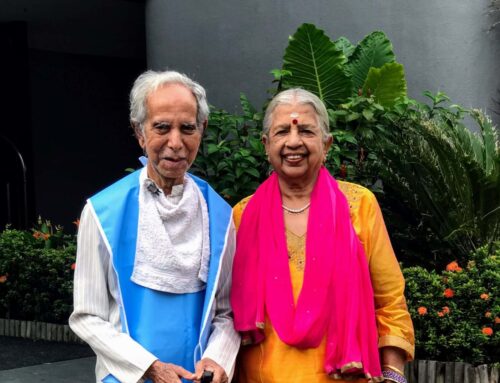Master bazaar economics and drive a hard bargain
I am driving my Scorpio van with two kids and a Labrador in the back. At 7am, Bangalore is cool and quiet, its roads devoid of traffic.
I am antsy because I am late dropping off the kids at school for a competition. My eyes dart to the clock, and boom … my car brushes against another that is pulling out of a parallel parked slot. The encounter is shockingly loud.
I stop and get out of my car. The other driver walks up. “What have you done, Madam? I had my indicator on,” he says reproachfully.
I am already defensive, cursing myself for driving fast on the empty roads. The damage, thankfully, doesn’t look so bad. His car is a tad more damaged than mine, but whose fault it was is open to discussion.
In the US where I once lived, the protocol during accidents was clear. We exchanged insurance policy numbers, swapped visiting cards and said civil goodbyes, with the full expectation that our insurance companies would sort out the mess. This would eventually result in a higher premium, but at least it spared accident victims the trauma of negotiating their own settlements.
In India, we haggle on the spot, even if we are shaken up by the accident. The beauty of the system is its immediacy. At the end of the negotiation you are on your way and the accident is behind you. No phone calls, no follow-up, no appointments with the insurance agent. The price for this immediate resolution is marginal trauma and foolish tears.
“Repairing my car will cost at least 25,000 rupees (Dh2,061). How much are you willing to pay?” the other driver says. Thus begins my initiation into India’s spot-price system.
As Rajni Bakshi points out in her bookBazaars, Conversations and Freedom, the original markets were bazaars in which prices were different from value and both were determined through conversation, or haggling. The word bazaar comes from the Persian Pahlavi word baha-char, or place of prices.
India is a bazaar economy. Its markets are “conversations” in which prices are determined through determined bargaining. You have to decide what you are willing to pay on the spot, and this extends all along the price curve.
Whether you are buying gold coins or a house; whether you are negotiating a more favourable premium or better rates from your plumber; whether you are caught in an accident or simply buying a sack of potatoes … in India, price is determined through conversation, not rules, forms, and protocol. Its markets are fluid and strangely intuitive.
Try to buy a fake Gucci bag in Hong Kong, hire a guide in Luang Prabang, or ride a camel in Giza and you will immediately realise that a price tag in the East is an extraordinarily fluid concept.
There are some key skills that are essential to operate in a bazaar economy such as India, and indeed much of the East.
Body language and stance, for instance, are important, because they reveal how you feel and can often be faked. At some point while bargaining at the souq, the merchant will decide he has pushed you far enough and that he can either give you that Turkish dagger at the price you’ve arrived at, or you will walk.
The trick is to fake that end-point – after enough back and forth, of course – so that the merchant will back off and sell you the object of your desire without further haggling.
Today, we spend more time online. We buy from websites and eBay can lay some claim to being a bazaar. My view is that eBay is more auction block than bazaar. While transactions can gain urgency, they rarely get ugly (like they sometimes can in a real one).
Social networks, in my view, are a crutch in the bazaar economy. They allow you to connect with people beyond geographic boundaries but offer little practice in reading bodies, eyes and minds.
Online expertise may serve you well in a normal market economy in which you trade through a computer, but will offer little practice for a bazaar economy in which you actually have to interact with people.
This is why western tourists are overwhelmed by and often get ripped off at eastern bazaars. They simply don’t know how to deal with the chaos.
Knowledge of what things cost is key to negotiation. I ended up paying the other driver 7,000 rupees for his damage. He paid me nothing. The underlying assumption was that his car was more damaged than mine.
When I returned home, I learned that I had overpaid by several thousand rupees. Car mirrors, hubcaps and bumpers were all available in the second-hand market of Shivaji Nagar for a few hundred rupees. I should have paid 2,000 rupees.
What bugged me was that it was entirely preventable. My father says that every person needs to have a doctor, lawyer, accountant and mechanic on speed dial. I knew a garage mechanic. I should have called him and checked if the other driver’s estimates were correct. It would have helped me to negotiate better.
Second lesson: take charge of the numbers when negotiating. Just because the shopkeeper says that the carpet costs US$5,000 (Dh18,365) doesn’t mean that you have to negotiate it down from that number. Set your own numbers.
But to do that, you need to have a sense of how much things cost. I didn’t, and so I got gypped.
Shoba Narayan is a journalist based in Bangalore and the author of Monsoon Diary





Leave A Comment